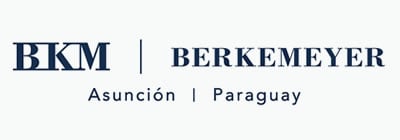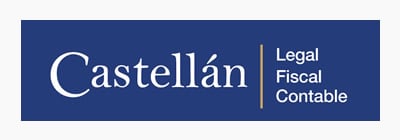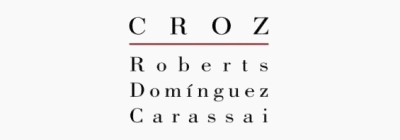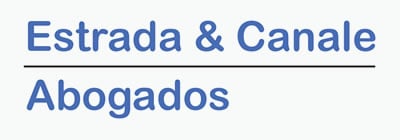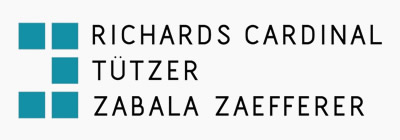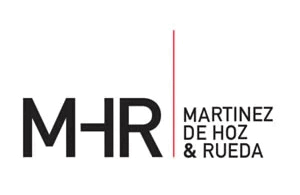In this paper we select the most relevant parts of the applicable rulings to the recent judicial saga of the Argentine sovereign debt in default to show the radical changes took by the United States courts that were in charge of the cases, including the latest case dated December 22, 2016. The excerpts permit to see and understand the implications that the Argentina judicial saga may have for future sovereign restructurings.
I. Order from the Federal District Court (December 7, 2011)
a. “Uncontested Facts”
The ruling states what the judge considered “uncontested facts” and which are enumerated as follows:
1. Pari passu Section of the Republic’s 1994 Fiscal Agency Agreement (“FAA”)
“The Securities [i.e., the bonds] will constitute . . . direct, unconditional, unsecured and unsubordinated obligations of the Republic and shall at all times rank pari passu and without any preference among themselves. The payment obligations of the Republic under the Securities shall at all times rank at least equally with all its other present and future unsecured and unsubordinated External Indebtedness (as defined in this Agreement).”
2. Jurisdiction of the New York Courts
“The Republic has in the Fiscal Agency Agreement irrevocably submitted to the jurisdiction of any New York state or federal court sitting in the Borough of Manhattan, The City of New York and the courts of the Republic of Argentina (the “Specified Courts”) over any suit, action, or proceeding against it or its properties, assets or revenues with respect to the Securities of this Series or the Fiscal Agency Agreement (a “Related Proceeding”) except with respect to any actions brought under the United States federal securities laws. The Republic has in the Fiscal Agency Agreement waived any objection to Related Proceedings in such courts whether on the grounds of venue, residence or domicile or on the ground that the Related Proceedings have been brought in an inconvenient forum. The Republic agrees that a final non-appealable judgment in any such Related Proceeding (the “Related Judgment”) shall be conclusive and binding upon it and may be enforced in any Specified Court or in any other courts to the jurisdiction of which the Republic is or may be subject (the “Other Courts”), by a suit upon such judgment.”
3. Exchange Bonds (2005 and 2010 Restructurings)
“The Republic issued other bonds in its 2005 and 2010 Exchange Offers (“Exchange Bonds”), thereby creating new unsecured and unsubordinated External Indebtedness.” “The Republic has satisfied the payment obligations that have come due to date under the Exchange Bonds.”
4. Lack of Payment of the FAA Bonds
“The Republic has not paid principal or interest on NML’s Bonds since December, 2001. NML has brought the captioned actions to recover on the defaulted bonds, pursuant to its legal rights, and also pursuant to the express undertakings in the bonds.”
5. “Lock Laws”
“On February 10, 2005, Argentina enacted Law 26,017, providing that the “national State shall be prohibited from conducting any type of in- court, out-of-court or private settlement with respect to bonds” that were eligible to participate in the 2005 Exchange Offer. On December 9, 2009, Argentina enacted Law 26,547, which, inter alia, suspended the effect of Law 26,017 for a period of time during which the 2010 Exchange Offer was launched, closed, and consummated. Law 26,547 also provides that the “Republic of Argentina . . . is prohibited to offer holders of government bonds [including those issued pursuant to the FAA] who may have initiated judicial, administrative, arbitration or any other type of action [to enforce their rights], more favorable treatment than what is offered to those who have not done so.”
6. Claims: Summary Judgment for Breach of the pari Passu Section and Injunctions
“… NML claims that the Republic breached (and continues to breach) its contractual duty to rank its payment obligations under NML’s Bonds at least equally with all its other present and future unsecured and unsubordinated External Indebtedness, NML seeks summary judgment on the Republic’s liability for that breach, and NML seeks an injunction that would restore it to its bargained-for position among other creditors.”
b. Order Granted
1. Ranking the Payment Obligations Equally with Other External Indebtedness
“The motion for partial summary judgment pursuant to Rule 56(a) is GRANTED… It is DECLARED, ADJUDGED, and DECREED that the Republic is required under Paragraph 1(c) of the FAA at all times to rank its payment obligations pursuant to NML’s Bonds at least equally with all the Republic’s other present and future unsecured and unsubordinated External Indebtedness.”
“It is DECLARED, ADJUDGED, and DECREED that the Republic’s payment obligations on the bonds include its payment obligations to bondholders who have brought actions to recover on their defaulted bonds, and on judgments entered pursuant to judicial action brought by bondholders.”
2. Violation of the Pari Passu Section Based on a Combination of Non-payment and Lock Laws
“It is DECLARED, ADJUDGED, and DECREED that the Republic violates Paragraph 1(c) of the FAA whenever it lowers the rank of its payment obligations under NML’s Bonds below that of any other present or future unsecured and unsubordinated External Indebtedness, including (and without limitation) by relegating NML’s bonds to a non-paying class by failing to pay the obligations currently due under NML’s Bonds while at the same time making payments currently due to holders of other unsecured and unsubordinated External Indebtedness or by legislative enactment.”
“It is DECLARED, ADJUDGED, and DECREED that the Republic lowered the rank of NML’s bonds in violation of Paragraph 1(c) of the FAA when it made payments currently due under the Exchange Bonds, while persisting in its refusal to satisfy its payment obligations currently due under NML’s Bonds.” “It is DECLARED, ADJUDGED, and DECREED that the Republic lowered the rank of NML's bonds in violation of Paragraph l(c) of the FAA when it enacted Law 26,017 and Law 26,547.”
“It is DECLARED, ADJUDGED, and DECREED that the aforesaid laws were in direct violation of the right of NML under the FAA and the bond agreements to bring a legal action in court to recover on the defaulted bonds.”
3. Denial of the Motion for Injunctive Relief
“The motion for injunctive relief and/or specific performance pursuant to FRCP 65(d) and the court's inherent equitable powers is DENIED at the present time to permit further consideration by the court regarding the means of enforcement of the present ORDER.”
II. Order from the Federal District Court (February 23, 2012)
a. Order: Issuance of Equitable Relief
1. Issuance of Equitable Relief
“It is DECLARED, ADJUDGED, and DECREED that NML is irreparably harmed by and has no adequate remedy at law for the Republic's ongoing violations of Paragraph I (c) of the FAA, and that the equities and public interest strongly support issuance of equitable relief to prevent the Republic from further violating Paragraph 1(c) of the FAA.” “Absent equitable relief, NML would suffer irreparable harm because the Republic's payment obligations to NML would remain debased of their contractually-guaranteed status, and NML would never be restored to the position it was promised that it would hold relative to other creditors in the event of default.”
“There is no adequate remedy at law for the Republic's ongoing violations of Paragraph I (c) of the FAA because the Republic has made c1ear - indeed, it has codified in Law 26,017 and Law 26,547- its intention to defy any money judgment issued by this Court.”
“The balance of the equities strongly supports this Order in light of the clear text of Paragraph I(c) of the FAA and the Republic's repeated failures to make required payments to NML. In the absence of the equitable relief provided by this Order, the Republic will continue to violate Paragraph l(c) with impunity, thus subjecting NML to harm.”
“The Order requires of the Republic only that which it promised NML and similarly situated creditors to induce those creditors to purchase the Republic's bonds. Because the Republic has the financial wherewithal to meet its commitment of providing equal treatment to both NML (and similarly situated creditors) and those owed under the terms of the Exchange Bonds, it is equitable to require it to do so. Indeed, equitable relief is particularly appropriate here, given that the Republic has engaged in an unprecedented, systematic scheme of making payments on other external indebtedness, after repudiating its payment obligations to NML, in direct violation of its contractual commitment set forth in Paragraph 1(c) of the FAA.”
2. Fundamentals of the Injunctions
“The public interest of enforcing contracts and upholding the rule of law will be served by the issuance of this Order, particularly here, where creditors of the Republic have no recourse to bankruptcy regimes to protect their interests and must rely upon courts to enforce contractual promises. No less than any other entity entering into a commercial transaction, there is a strong public interest in holding the Republic to its contractual obligations.”
3. Extent of the Injunctions
“The Republic accordingly is permanently ORDERED to specifically perform its obligations to NML under Paragraph I (c) of the FAA as follows: Whenever the Republic pays any amount due under the terms of the bonds or other obligations issued pursuant to the Republic's 2005 or 2010 Exchange Offers, or any subsequent exchange of or substitution for the 2005 and 2010 Exchange Offers that may occur in the future (collectively, the "Exchange Bonds"), the Republic shall concurrently or in advance make a "Ratable Payment" (as defined below) to NML. Such "Ratable Payment" that the Republic is ORDERED to make to NML shall be an amount equal to the "Payment Percentage" (as defined below) multiplied by the total amount currently due to NML in respect of the bonds at issue in these cases, including pre-judgment interest (the "NML Bonds"). Such "Payment Percentage" shall be the fraction calculated by dividing the amount actually paid or which the Republic intends to pay under the terms of the Exchange Bonds by the total amount then due under the terms ofthe Exchange Bonds.
The Republic is ENJOINED from violating Paragraph l(c) of the FAA, including by making any payment under the terms of the Exchange Bonds without complying with its obligation pursuant to Paragraph l(c) of the FAA by concurrently or in advance making a Ratable Payment to NML.
Within three (3) days of the issuance of this ORDER, the Republic shall provide copies of this ORDER to all parties involved, directly or indirectly, in advising upon, preparing, processing, or facilitating any payment on the Exchange Bonds (collectively, "Agents and Participants"), with a copy to counsel for NML. Such Agents and Participants shall be bound by the terms of this ORDER as provided by Rule 65(d)(2) and prohibited from aiding and abetting any violation of this ORDER, including any further violation by the Republic of its obligations under Paragraph 1(c) ofthe FAA, such as any effort to make payments under the terms of the Exchange Bonds without also concurrently or in advance making a Ratable Payment to NML.”
“The Republic is permanently PROHIBITED from taking action to evade the directives of this ORDER, render it ineffective, or to take any steps to diminish the Court's ability to supervise compliance with the ORDER, including, but not limited to, altering or amending the processes or specific transfer mechanisms by which it makes payments on the Exchange Bonds, without obtaining prior approval of the Court.”
III. Order from the Federal District Court (March 5, 2012)
“To secure Plaintiffs’ rights during the pendency of the Republic’s appeals of the February 23, 2012 Orders to the Second Circuit, it is ordered that the Republic shall not during the pendency of the appeal to the Second Circuit take any action to evade the directives of the February 23, 2012 Orders in the event they are affirmed, render them ineffective in the event they are affirmed, or diminish the Court’s ability to supervise compliance with the February 23, 2012 Orders in the event they are affirmed, including without limitation, altering or amending the processes or specific transfer mechanisms by which it makes payments on the Exchange Bonds, without prior approval of the Court.”
“This Court shall retain jurisdiction to monitor and enforce this ORDER, and, on notice to the parties, to modify, amend, or extend it as justice requires to achieve its equitable purposes and account for materially changed circumstances, including any failure by the Republic to abide by Paragraph (2) herein.”
IV. Ruling of the Court of Appeals (October 26th, 2012)
a. No Abuse of Discretion
“We hold that an equal treatment provision in the bonds bars Argentina from discriminating against plaintiffs’ bonds in favor of bonds issued in connection with the restructurings and that Argentina violated that provision by ranking its payment obligations on the defaulted debt below its obligations to the holders of its restructured debt. Accordingly, we affirm the judgment of the district court; we find no abuse of discretion in the injunctive relief fashioned by the district court, and we conclude that the injunctions do not violate the Foreign Sovereign Immunities Act (“FSIA”).”
b. Breach Due to a “Combination” of Events
“In short, the combination of Argentina’s executive declarations and legislative enactments have ensured that plaintiffs’ beneficial interests do not remain direct, unconditional, unsecured and unsubordinated obligations of the Republic and that any claims that may arise from the Republic’s restructured debt do have priority in Argentinian courts over claims arising out of the Republic’s unstructured debt. Thus we have little difficulty concluding that Argentina breached the Pari Passu Clause of the FAA.”
c. Specific Performance (Injunctions)
“Specific performance may be ordered where no adequate monetary remedy is available and that relief is favored by the balance of equities, which may include the public interest. Once the district court determined that Argentina had breached the FAA and that injunctive relief was warranted, the court had considerable latitude in fashioning the relief. The performance required by a decree need not, for example, be identical with that promised in the contract. Greenspahn v. Joseph E. Seagram & Sons, Inc., 186 F.2d 616, 620 (2d Cir. 1951).
“Where “the most desirable solution” is not possible, this Court may affirm an order of specific performance so long as it achieves a “fair result” under the “totality of the circumstances.” Leasco, 473 F.2d at 786. While paragraph 12 of the FAA specifies acceleration as one remedy available for a breach of the Equal Treatment Provision, the FAA does not contain a clause limiting the remedies available for a breach of the agreement. Nor does the FAA contain a provision precluding specific performance or injunctive relief.”
“Moreover, it is clear to us that monetary damages are an ineffective remedy for the harm plaintiffs have suffered as a result of Argentina’s breach. Argentina will simply refuse to pay any judgments. It has done so in this case by, in effect, closing the doors of its courts to judgment creditors. In light of Argentina’s continual disregard for the rights of its FAA creditors and the judgments of our courts to whose jurisdiction it has submitted, its contention that bondholders are limited to acceleration is unpersuasive. Insofar as Argentina argues that a party’s persistent efforts to frustrate the collection of money judgments cannot suffice to establish the inadequacy of a monetary relief, the law is to the contrary. In this context, the district court properly ordered specific performance.”
V. Orders and Opinions from the Federal District Court (November 21, 2012)
a. Order Lifting the Stay
“… it is HEREBY ORDERED that: The provision in the March 5, 2012 Order staying the carrying out of the February 23, 2012 Orders is vacated and it is directed that the February 23, 2012 Orders, as now somewhat modified, are to be carried out forthwith. This means that the February 23, 2012 Orders will be applicable to the interest payments made to exchange bondholders in December 2012. In order to avoid confusion and to give some reasonable time to arrange mechanics, the Court specifies that the precise interest payment involved will be that of December 15, 2012.”
b. Opinion
1. Violation of the Anti-Evasion Order
“From the moment of the October 26, 2012 Court of Appeals’ decision, the highest officials in Argentina have declared that Argentina would pay the exchange bondholders but would not pay one dollar to holders of the original FAA Bonds.”
“For the past ten years Argentina has repeatedly submitted matters to the District Court and the Court of Appeals, and received what was undoubtedly fair treatment, since Argentina prevailed in most matters. The court went on to urge that the Argentine government should back away from these ill-advised threats to defy the current court rulings, and that any defiance of the rulings of the courts would not only be illegal but would represent the worst kind of irresponsibility in dealing with the judiciary. This did not stop the highest Argentine officials who have continued to the present time their inflammatory declarations that the court rulings will not be obeyed.”
“These statements are a violation of paragraph 2 of the March 5, 2012 Stay Order. In that paragraph, Argentina is prohibited, during the appeal, from taking any action to evade the February 23, 2012 Order in the event it is affirmed, and is further prohibited from taking any action to diminish the court’s ability to supervise compliance with the February 23, 2012 Order in the event of affirmance. Pursuant to paragraph 4 of the Stay Order, the Court retains jurisdiction to deal with materially changed circumstances, including any failure by Argentina to abide by paragraph 2. It could be argued that the statements of the high Argentine officials do not literally constitute the kind of “action” referred to in paragraph
2. But the essential issue goes beyond this.
Surely an extraordinary circumstance of the most serious nature arises from continuous declarations by the President of Argentina and cabinet officers, that Argentina will not honor or carry out the current rulings of the District Court and Court of Appeals in the litigation to which Argentina is a party. It is the view of the District Court that these threats of defiance cannot go by unheeded, and that action is called for.”
2. Order to be Carried Out Forthwith
“After due consideration, the court has resolved that the following steps should be taken. The court believes that the Order regarding Ratable Payments should be put into effect at the earliest possible time. The less time Argentina is given to devise means for evasion, the more assurance there is against such evasion. Therefore, the provision in the March 5, 2012 Order staying the carrying out of the February 23, 2012 Order is vacated and it is directed that the February 23, 2012 Order, as now somewhat modified, is to be carried out forthwith.”
VI. Ruling of the Court of Appeals (August 23, 2013)
a. Remainder: Argentina’s Breach of the Pari Passu was Exceptional
“As we have held, by defaulting on the Bonds, enacting legislation specifically forbidding future payment on them, and continuing to pay interest on subsequently issued debt, Argentina breached its promise of equal treatment.”
“… Argentina and various amici assert that the amended injunctions will imperil future sovereign debt restructurings. They argue essentially that success by holdout creditors in this case will encourage other bondholders to refuse future exchange offers from other sovereigns. They warn that rather than submitting to restructuring, bondholders will hold out for the possibility of full recovery on their bonds at a later time, in turn causing second- and third-order effects detrimental to the global economy and especially to developing countries. But this case is an exceptional one with little apparent bearing on transactions that can be expected in the future. Our decision here does not control the interpretation of all pari passu clauses or the obligations of other sovereign debtors under pari passu clauses in other debt instruments. As we explicitly stated in our last opinion, we have not held that a sovereign debtor breaches its pari passu clause every time it pays one creditor and not another, or even every time it enacts a law disparately affecting a creditor’s rights. See NML I at 264 n.16. We simply affirm the district court’s conclusion that Argentina’s extraordinary behavior was a violation of the particular pari passu clause found in the FAA.”
VII. Orders from the Federal District Court (February 19, 2016 and March 2, 2016)
a. Indicative Ruling (February 19, 2016)
1. Reasons of the Injunctions
“In issuing the injunctions, the court made findings that, at that time, supported such equitable relief. For example, the court explained that plaintiffs had no adequate remedy at law due to the Republic’s passage of Law 26,017 (which prohibited settlement with plaintiffs who declined the exchange offers) and Law 26,547 (which prevented plaintiffs from receiving settlements more favorable than the exchange offers). Moreover, the court found that both the equities and the public interest supported the injunctions because of the Republic’s “repeated failures” to pay plaintiffs and its “unprecedented, systematic scheme” to pay other debts without paying plaintiffs.” Id. § 1(c) & (d); see also Am. & Suppl. Order, NML Capital, Ltd. v. Republic of Argentina, No. 08- cv-6978 (S.D.N.Y. Oct. 3, 2014) (holding the Republic in contempt after it attempted to evade the injunctions by passing Law 26,984—the “Sovereign Payment Law”).”
2. Change in Circumstances
“In November 2015, the Republic’s voters elected Mauricio Macri as their president, ending the twelve-year reign of the previous ruling party led by former President Cristina Kirchner. President Macri’s election marked a turning point in the Republic’s attitude and actions. Since the election, President Macri’s government has consistently declared its desire to resolve the disputes and reopen the country to foreign investors. See Stephen Adler & Sujata Rao, Argentina’s Macri Hopes for Creditor Deal Early in 2016, Reuters (Jan. 23, 2016), available at http://www.reuters.com/article/us-argentina-presidentidUSKCN0V00UP (“I want to be clear: We want to reach a settlement. We want to find a fair agreement.”).”
“Here, the Republic and a number of plaintiffs ask the court to exercise its discretion to vacate the injunctions. They argue that the injunctions’ continued effect is no longer equitable. The court agrees. The injunctions, once appropriate to address the Republic’s recalcitrance, can no longer be justified. Significantly changed circumstances have rendered the injunctions inequitable and detrimental to the public interest.”
“The original injunctive order explicitly gave this court the power to “modify and amend it as justice requires to achieve its equitable purposes and to account for changing circumstances.” Order § 5, NML Capital Ltd. v. Republic of Argentina, No. 08-cv-6978 (S.D.N.Y. Feb. 23, 2012). Put simply, President Macri’s election changed everything. Most importantly, the Republic has shown a good-faith willingness to negotiate with the holdouts. Under prior Argentine administrations, plaintiffs had to accept severe haircuts on the value of their bonds, or else engage in a usually fruitless effort to attach property to satisfy their judgments. The Republic never seriously pursued negotiations toward settlement. Instead, the Republic’s leadership engaged in rhetoric, calling plaintiffs “vultures” or “financial terrorists,” while showing open contempt for this court’s rulings. Robin Wigglesworth & Benedict Mander, Argentina on the Cusp of Peace with Creditors, Fin. Times (Feb. 16, 2016), available at http://on.ft.com/20B7FBk; NML Capital, Ltd. v. Republic of Argentina, 727 F.3d 230, 247 (2d Cir. 2013) (describing the Republic as “a uniquely recalcitrant debtor”). Despite the best efforts of the Special Master, he could not coax the Republic to negotiate with plaintiffs in good faith in 2014 and 2015.”
“All that has changed. President Macri pledged during his campaign that he would seek to resolve these long-running lawsuits—and he has honored that promise. Not long after President Macri’s December 2015 inauguration, the Secretary of Finance approached the Special Master to begin negotiations in earnest. The Republic’s high-level officials met with the Special Master and a group of plaintiffs in January 2016 to establish a framework for substantive talks. And, through the first week of February, the Special Master convened a series of meetings in New York. As the Special Master continually informed the court, he communicated intensively with the Republic’s officials and the plaintiffs’ lead principals on virtually a daily basis. The Republic’s senior officials met with a substantial number of plaintiffs as a group, and also spoke separately with a number of those plaintiffs who sought private dialogue with the Republic. By the end of the first week of negotiations, the Republic had reached Agreements in Principle with plaintiffs in five actions, involving payments exceeding $1 billion. At the end of the week, the Republic also issued its public Proposal to settle with all FAA bondholders.”
“Before the court actually vacates the injunctions, another circumstance must change. As part of the settlement agreements, the Republic must repeal legislative obstacles enacted by prior administrations. Gone will be the Lock Law—the legislation that led the court to fashion these injunctions in the first place—as well as other antagonistic legislation, such as the Sovereign Payment Law. See generally Order § 1(b) & (c), NML Capital Ltd. v. Republic of Argentina, No. 08-cv-6978 (S.D.N.Y. Feb. 23, 2012); NML Capital, Ltd. v. Republic of Argentina, 727 F.3d 230, 241 (2d Cir. 2013). Not only do the very terms of the Republic’s Proposal contemplate repeal, but—in the Republic’s own words—the lifting of the injunctions would require it. See Def.’s Mem. L. Supp. Mot. Vacate 3, NML Capital, Ltd. v. Republic of Argentina, No. 08-cv-6978 (S.D.N.Y. Feb. 11, 2016). These are truly “exceptional circumstances.” See Motorola Credit Corp. v. Uzan, 561 F.3d 123, 126 (2d Cir. 2009) (citation omitted).”
“Although the court takes no position on the reasonableness of the Republic’s Proposal, the court does recognize the Republic’s earnest efforts to negotiate and its striking change in attitude toward settlement since President Macri assumed office. Just as the Republic’s conduct in 2012 and 2015 influenced the court’s decision to issue the original and “me too” injunctions, so too must the court consider the Republic’s present behavior. The balance of equities has shifted, for no longer is the Republic exhibiting “reluctance to entertain meaningful settlement discussions before the Special Master.” Op. & Order 10, NML Capital, Ltd. v. Republic of Argentina, No. 14-cv-8601 (S.D.N.Y. Oct. 30, 2015).
“Even the objecting plaintiffs have recognized that the Republic’s willingness to negotiate a settlement impacts the balance of equities. In arguing that the equities weigh in their favor, those plaintiffs previously invoked the Republic’s “refus[al] to negotiate a settlement” and claimed that “[t]he biggest obstacle to settlement is Argentina itself.” Pls.’ Reply Mem. L. Supp. Mot. Specific Performance 6, 11, NML Capital, Ltd. v. Republic of Argentina, No. 14-cv-8601 (S.D.N.Y. Oct. 9, 2015).”
“In sum, circumstances have changed dramatically since the court first issued the injunctions in February 2012. The court finds and holds that maintaining the injunctions would now be inequitable.”
3. Vacating the Injunctions Serves the Public Interest.
“Vacating the injunctions would serve the public interest by ceasing the collateral effects they have on third parties. It would also promote amicable resolution of protracted legal disputes—both generally and in this particular litigation.”
“The Court of Appeals has also recognized this court’s discretion to consider “the health of the nation” when considering appropriate remedies. EM Ltd. v. Republic of Argentina, 131 F. App’x 745, 747 (2d Cir. 2005) (“Exercising discretion with respect to pre- and post-judgment remedies, the District Court acted well within its authority to vacate the remedies in order to avoid a substantial risk to the successful conclusion of the debt restructuring. That restructuring is obviously of critical importance to the economic health of a nation.”). Allowing the Republic to reenter the capital markets will undoubtedly help stimulate its economy and thus benefit its people. It might even encourage other indebted nations to choose compromise over intransigence.”
“Finally, vacating the injunctions serves the public interest by encouraging settlement to resolve disputes generally—particularly such protracted ones—as well as the concern for finality in this particular litigation. See Wal-Mart Stores, Inc. v. Visa U.S.A., Inc., 396 F.3d 96, 116 (2d Cir. 2005) (recognizing the “strong judicial policy in favor of settlements”).”
4. The Court May Exercise its Discretion to Vacate the Injunctions.
“Some plaintiffs argue that the court does not have the power to vacate the injunctions. They claim that the court must protect the injunctions’ purpose of enforcing the pari passu clause. Essentially, these plaintiffs believe the court cannot alter the injunctions if doing so would mean the Republic could pay the exchange bondholders without (1) ratably paying plaintiffs or (2) settling with plaintiffs for the full amount of their claims. It is important to recall that the plaintiffs had no absolute legal right to the injunctions. An injunction is an extraordinary measure that is not normally available for breach of contract.”
“The pari passu clause never required the equitable relief that the plaintiffs requested and the court granted. Rather, the court exercised its inherent equitable power to fashion a remedy for the Republic’s breach of the plaintiffs’ contractual rights. See Op., NML Capital, Ltd. v. Republic of Argentina, No. 08-cv-6979 (S.D.N.Y. Nov. 21, 2012) (explaining that the injunctions do “not literally to carry out the pari passu clause”). In short, the injunctions were a discretionary remedy, not a legal entitlement.”
“When the court was considering how to craft this equitable remedy, it stressed that the injunctions should not prevent bondholders from settling their claims with the Republic. See Hr’g Tr. 40, NML Capital, Ltd. v. Republic of Argentina, No. 08-cv-6978 (S.D.N.Y. Sept. 28, 2011) (expressing the court’s desire to find a remedy that would provide “leverage” without “do[ing] something that would prejudice the rights and opportunities of the people who want to make exchanges”).”
5. Conclusion
“For these reasons, the court now indicates that it would vacate the injunctions upon the occurrence of two conditions precedent:
(1) The Republic repeals all legislative obstacles to settlement with the FAA bondholders, including the Lock Law and the Sovereign Payment Law;
(2) For all plaintiffs that enter into agreements in principle with the Republic on or before February 29, 2016, the Republic must make full payment in accordance with the specific terms of each such agreement. The Republic must also notify the court once those plaintiffs have all received full payment.”
b. Order Vacating the Injunctions (March 3, 2016)
“The injunctive relief cannot be allowed to be used as a tool for leverage in negotiations. The court also wishes to note three recent developments that buttress the court’s prior finding that the injunctions are no longer equitable or in the public interest. First, the Republic has now signed Agreements in Principle with plaintiffs representing the vast majority of claims in these actions. The total settlement consideration now amounts to at least $6.2 billion, potentially resolving over 85% of claims held by plaintiffs with injunctions. Second, the Republic has abandoned all former challenges to the injunctions by voluntarily dismissing with prejudice the two appeals pursued by the Republic’s prior administration, thus showing a completely changed attitude. Third, yesterday President Macri addressed the Argentine Congress to urge approval of the law.”
VIII. Order of the Court of Appeals (April 15, 2016)
“The district court did not err, much less abuse its discretion, in finding changed circumstances warranting the reconsideration of the equities of maintaining the Injunctions nor in finding that, in light of the changed circumstances, keeping the Injunctions in place would no longer be equitable Plaintiffs-Appellants have never had a legal entitlement to an injunction. See E.E.O.C. v. KarenKim, Inc., 698 F.3d 92, 100 (2d Cir. 2012) (stating “an injunction is a matter of equitable discretion” and “does not follow from success on the merits as a matter of course” (internal quotation marks and alteration omitted)). The district court would not have abused its discretion if it had limited Plaintiffs-Appellants to a money judgment. The fact that the district court, in its discretion, gave Plaintiffs-Appellants a further tool to induce Argentina to comply with its obligations does not mean that the court is compelled to retain the discretionary injunction in place when changed circumstances make it less equitable.”
“In conclusion, we hold the district court did not abuse its discretion in finding changed circumstances so altered the equities as to disfavor maintenance of the Injunctions and ordering that the Injunctions would be vacated upon Argentina’s having met two specified conditions precedent. The district court should, however, take steps, at the time Argentina certifies it has satisfied the conditions precedent, to determine whether the conditions have indeed been met.”
IX Order from the Federal District Court (December 22, 2016)
“Although the meaning of the pari passu clause has been hotly disputed, the Republic’s “extraordinary conduct” during its prior administration led this court to find breach of the clause in December 2011 […] The Republic’s failure to make scheduled payments on its debts was part of this conduct, but it was only one element in a complicated set of circumstances. In subsequent orders, the court emphasized that what constituted breach was the Republic’s “entire and continuing course of conduct”, including harmful legislation like the Lock law and incendiary statements by the former administration”
“In short, the Republic violated the pari passu clause not merely by being a sovereign nation in default, but by being ‘a uniquely recalcitrant debtor’.”
“As this court recognized earlier this year, the Republic’s November 2015 election of Mauricio Macri ‘changed everything’ […] ‘President Macri’s government ‘has consistently declared its desire to resolve disputes,’ which ‘marked a turning point in the Republic’s attitude and actions.’ […] The court was not alone in acknowledging the Republic’s transformation”.
“Once the court sets aside these historical digressions, the amended complaints boil down to a simple but inadequate allegation: that mere payment to other creditors, including payment encouraged by this court to settle claims on other defaulted debt, constitutes a violation of the pari passu clause. In short, plaintiffs allege breach due to the Republic’s decision to pay other creditors while plaintiffs hold out for a better deal.”
“Nonpayment on defaulted debt alone is insufficient to show breach of the pari passu clause”.
Citas
(*) The author whishes to thank Magdalena Bulit-Goñi, counsel at the Ministry of Finance, for her assistance in this paper.
Artículos
DLA Piper Chile


opinión
ver todosAldana R. Schiavi
Ferrere Abogados
Ojam Bullrich Flanzbaum
detrás del traje
Nos apoyan

















